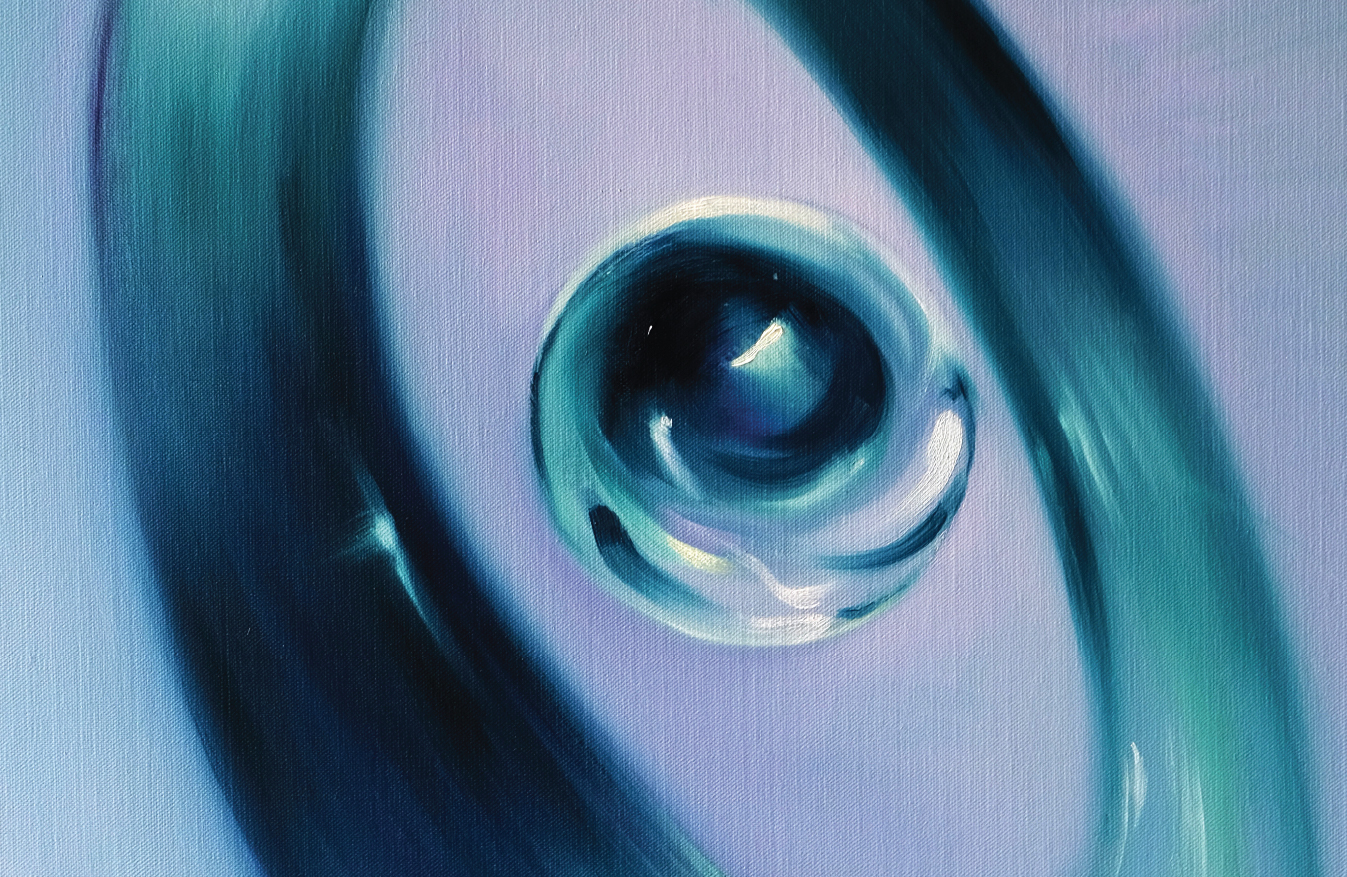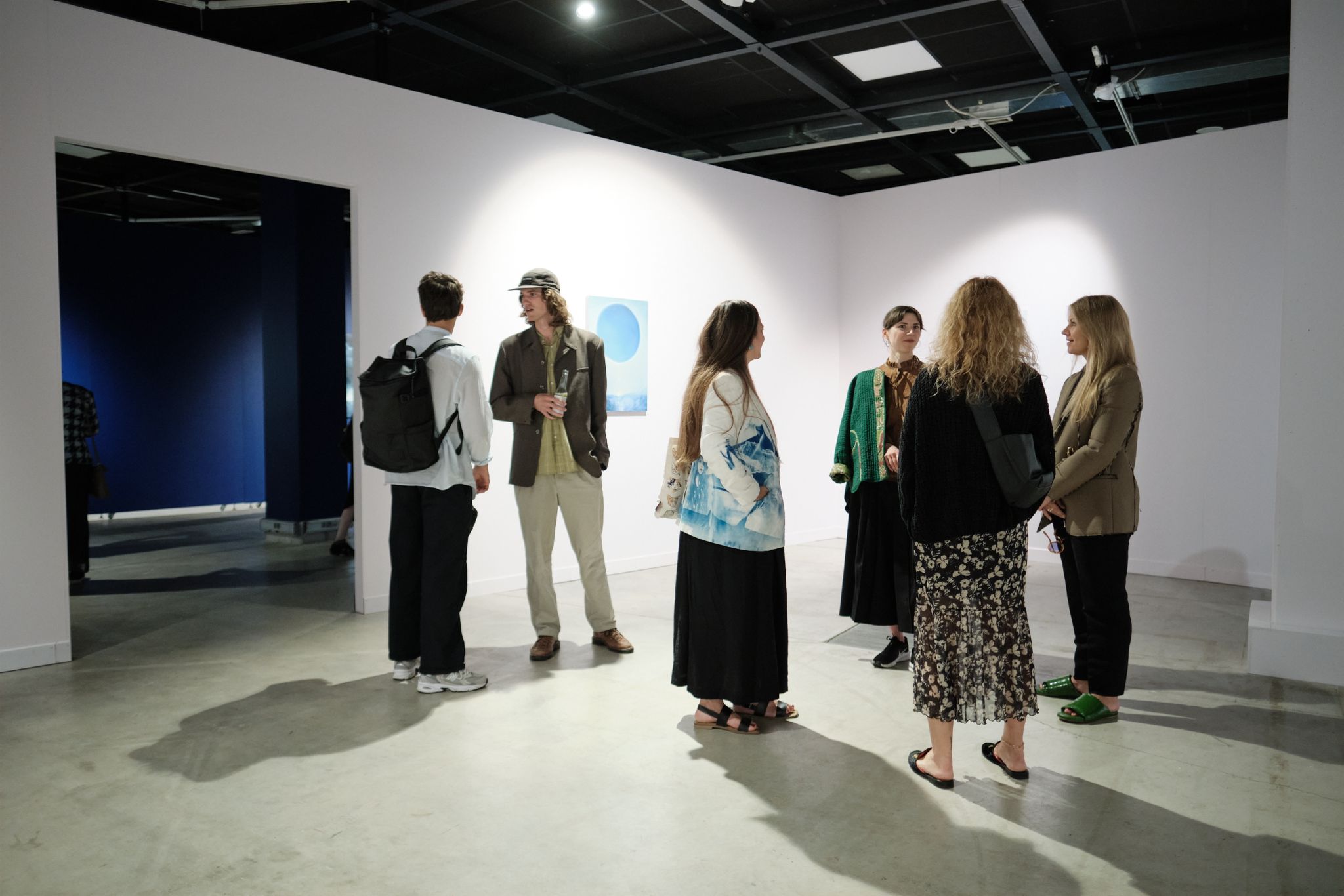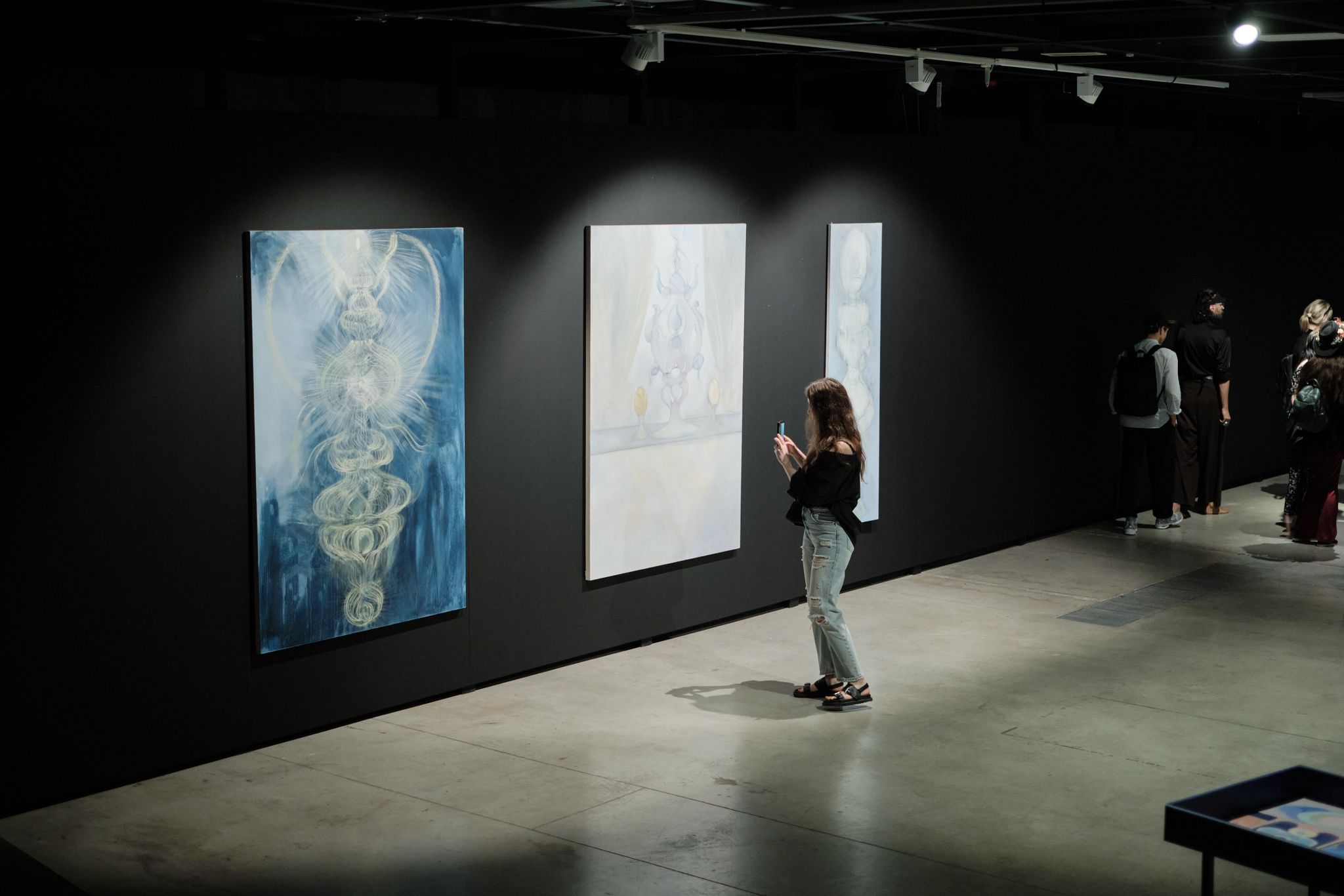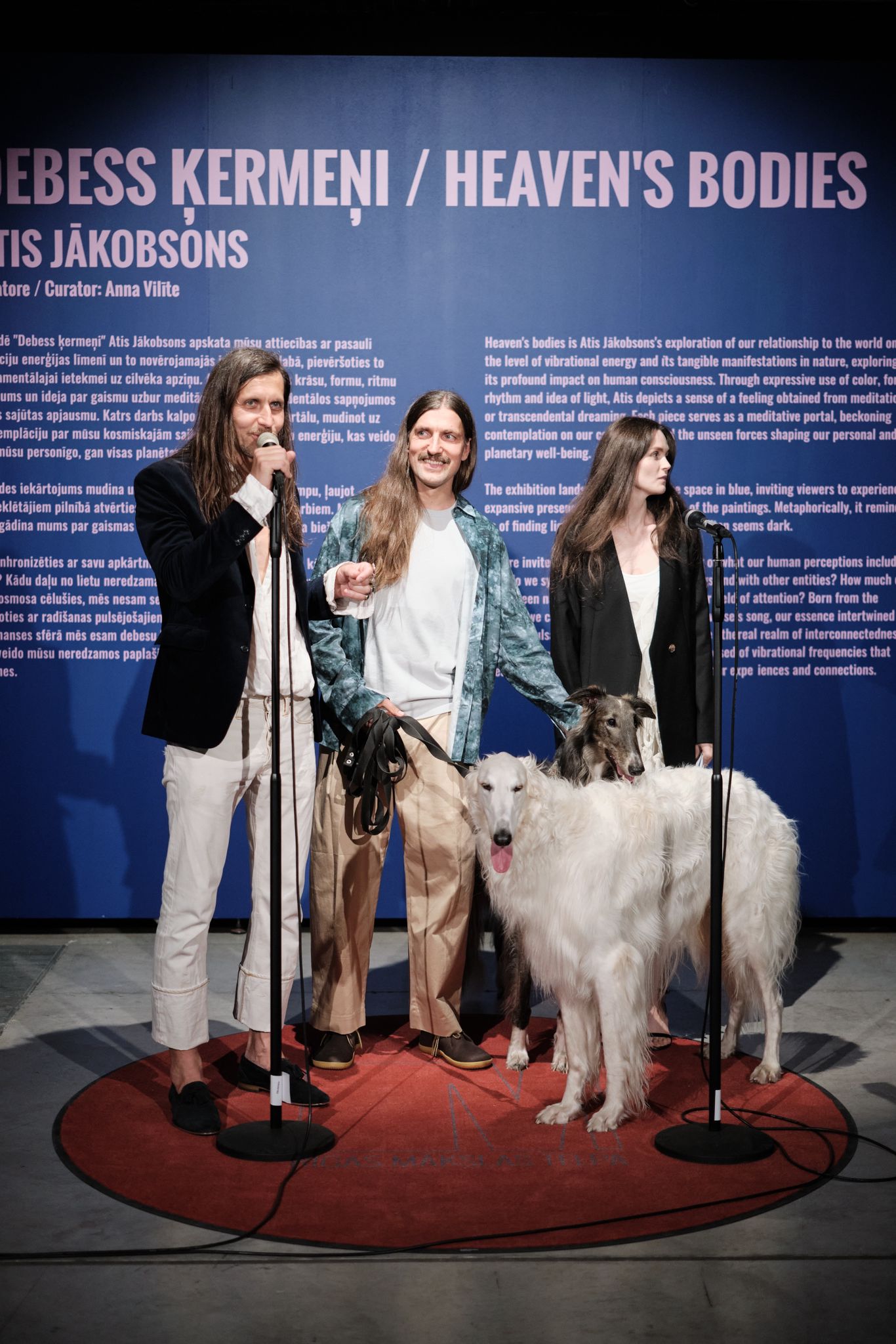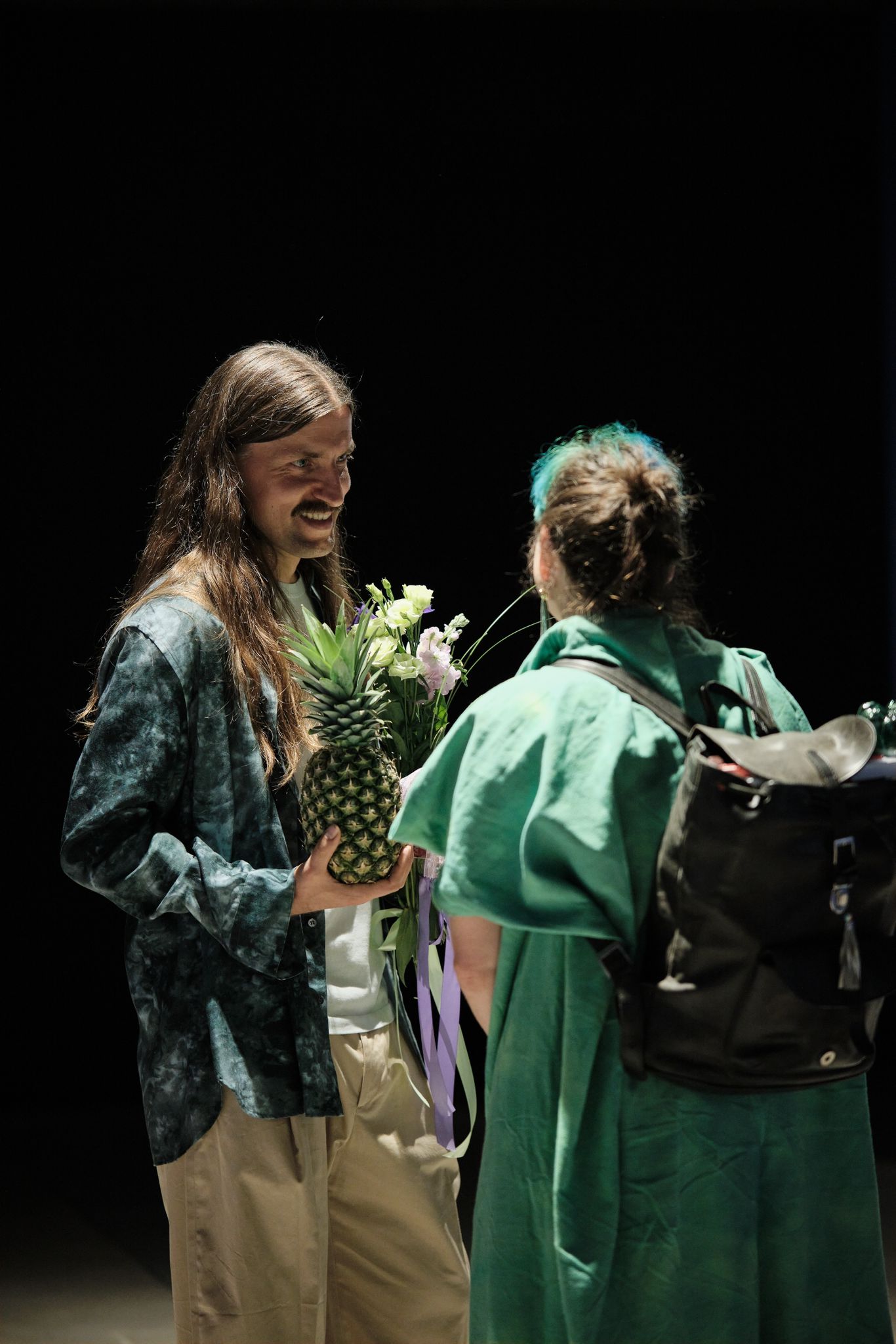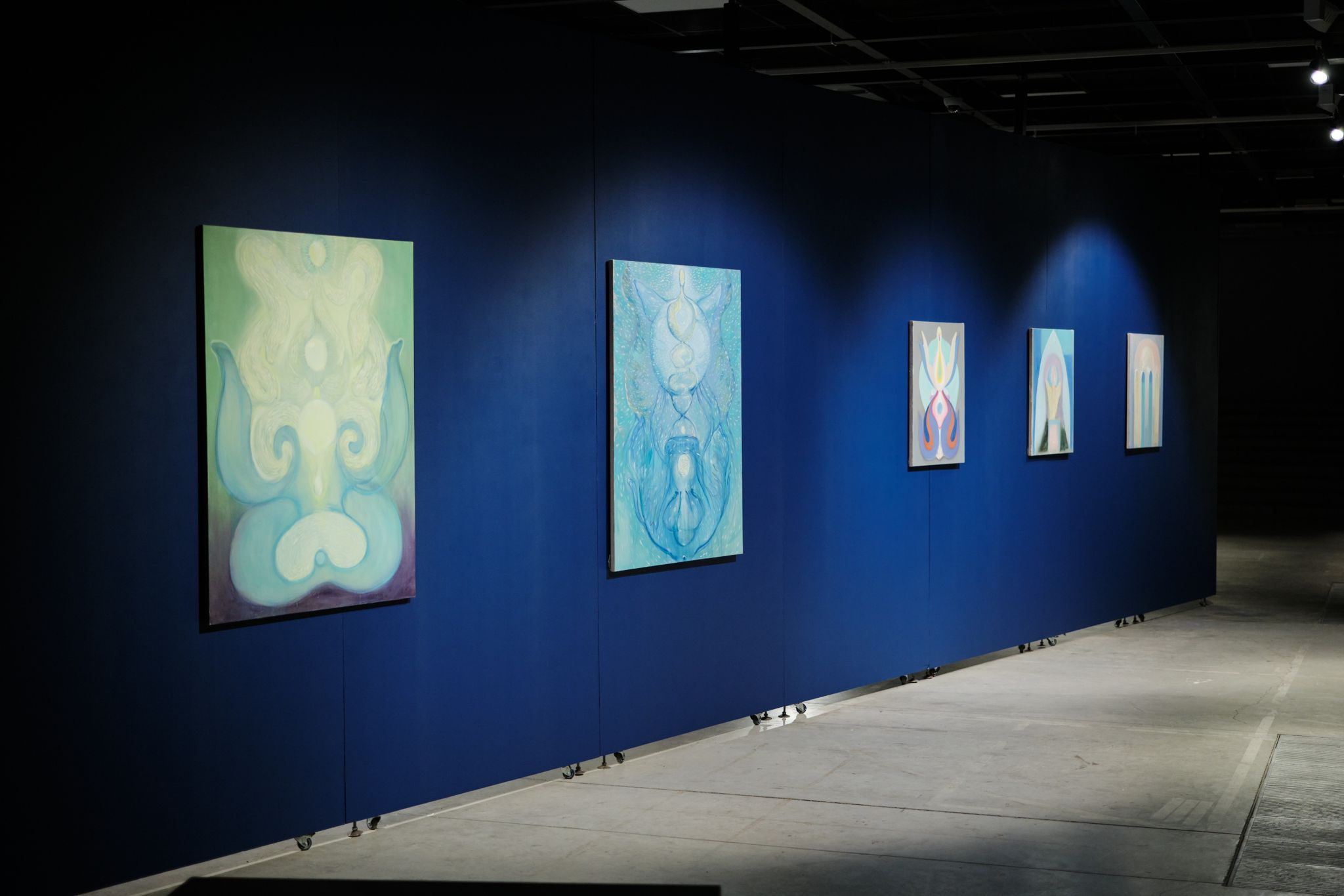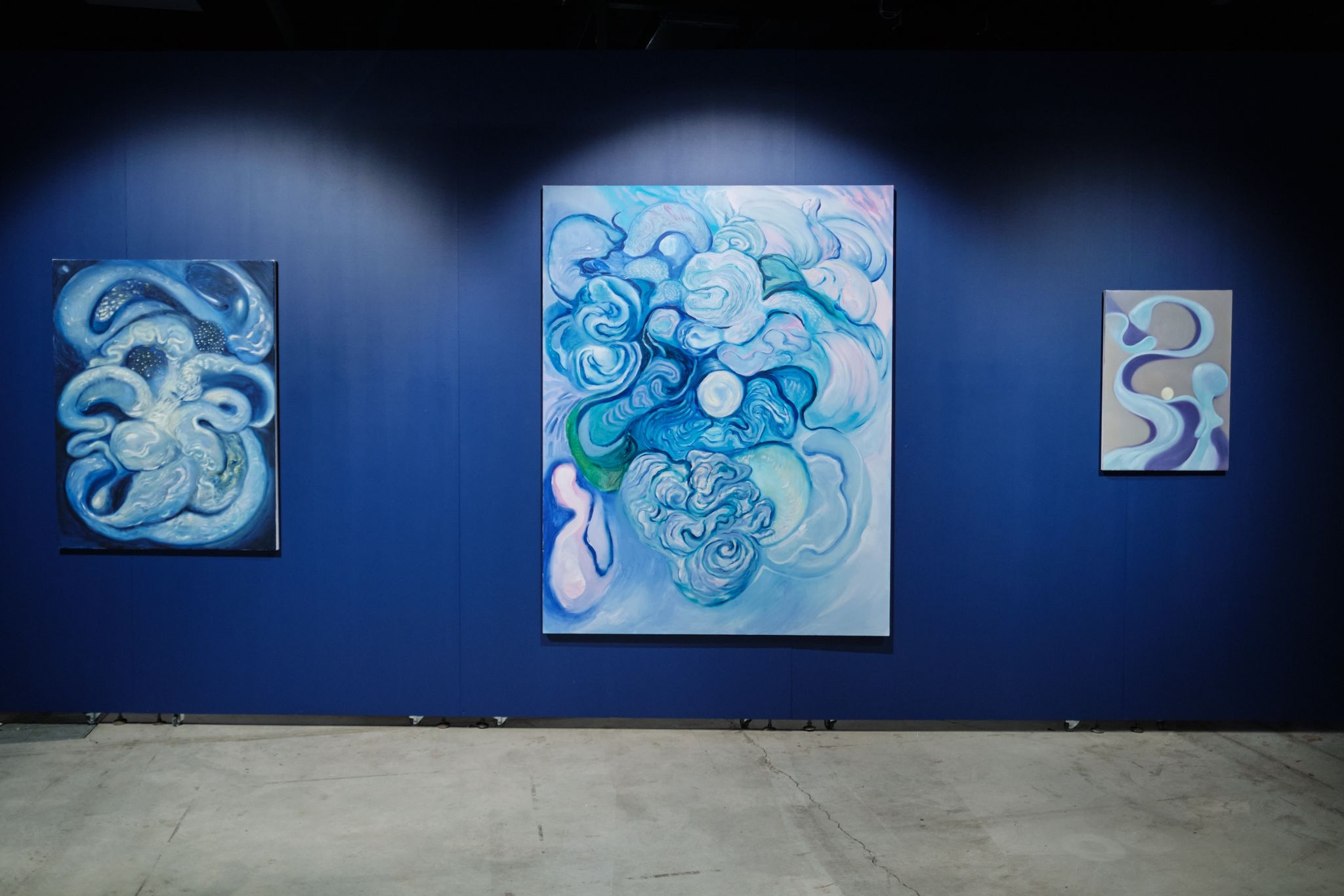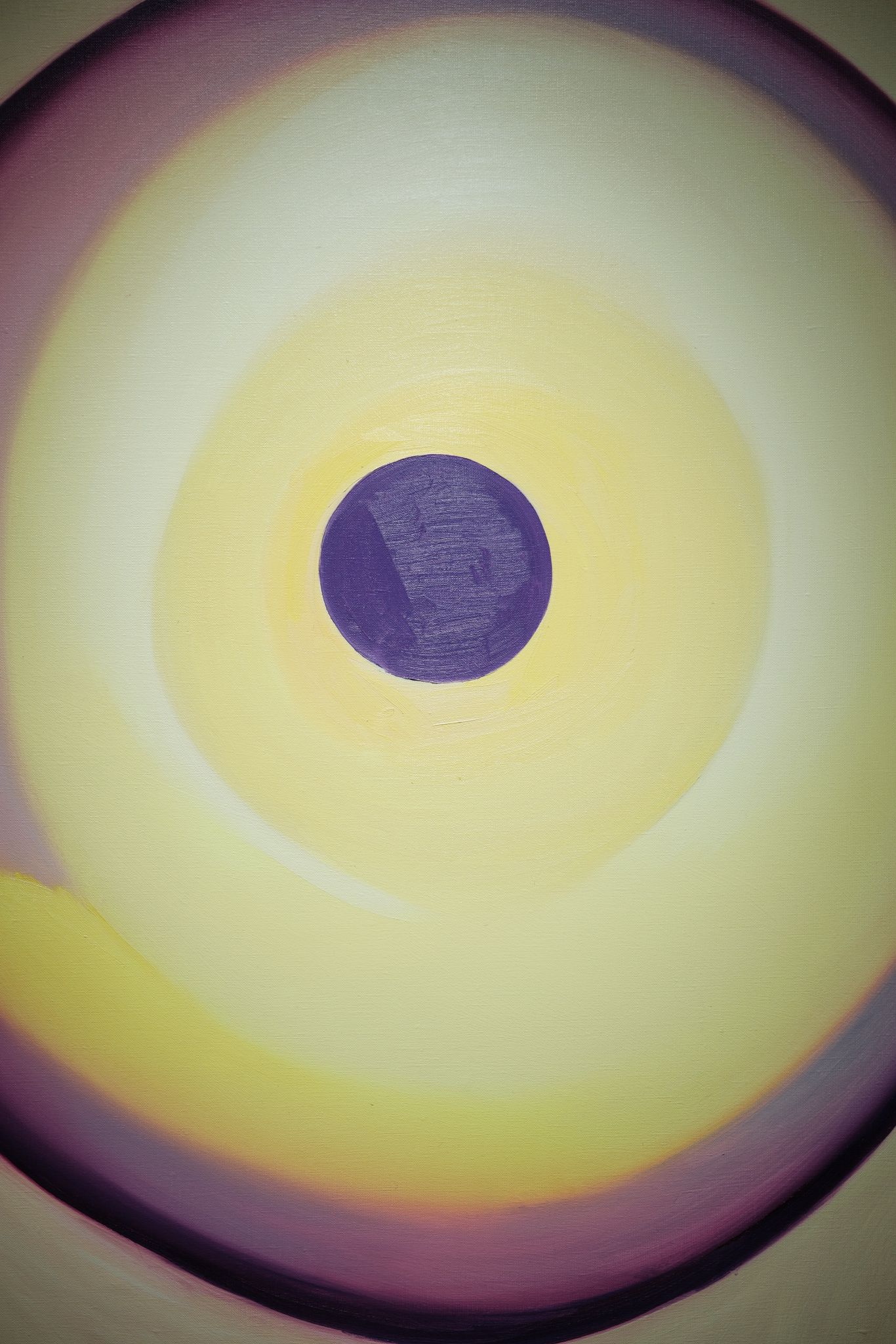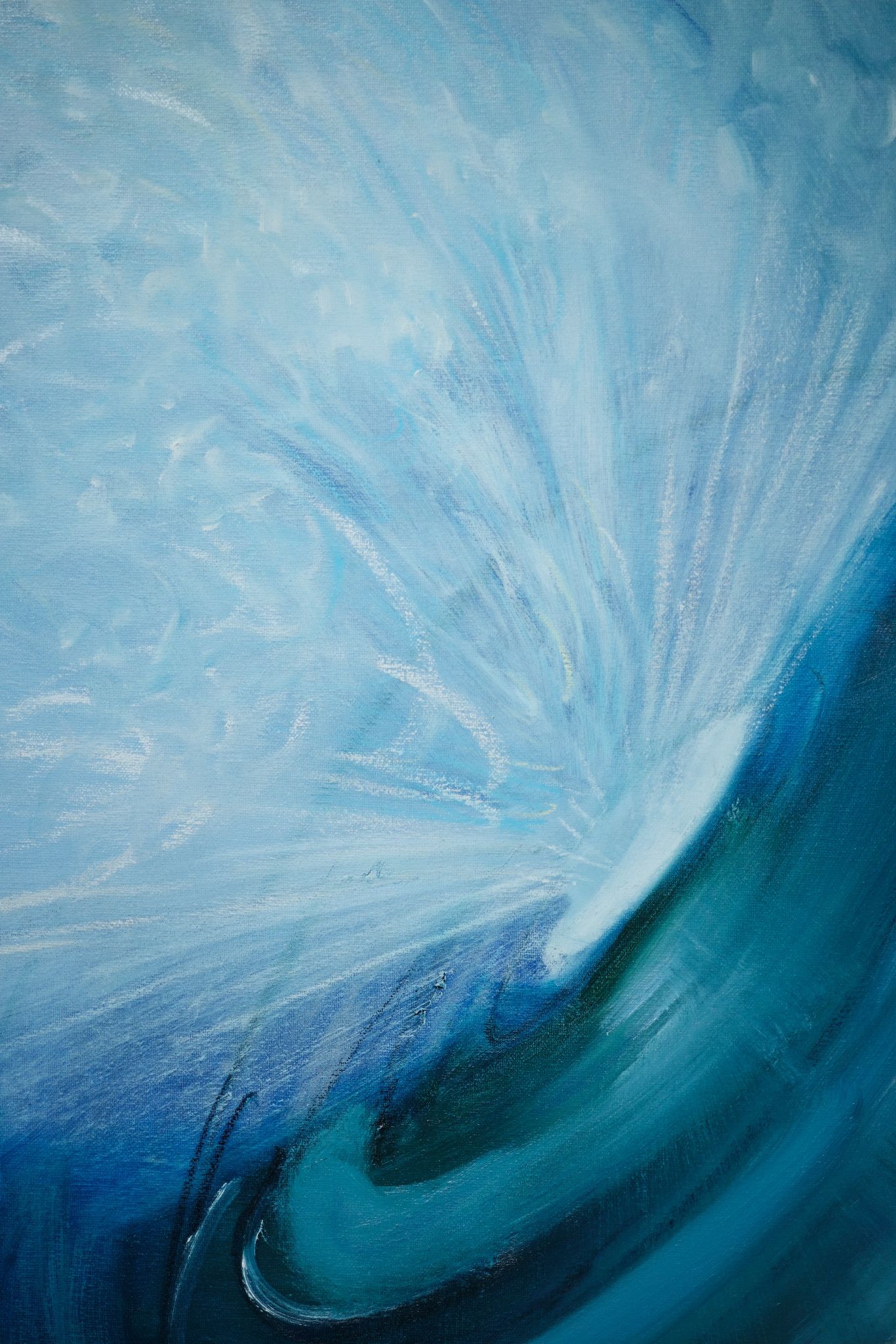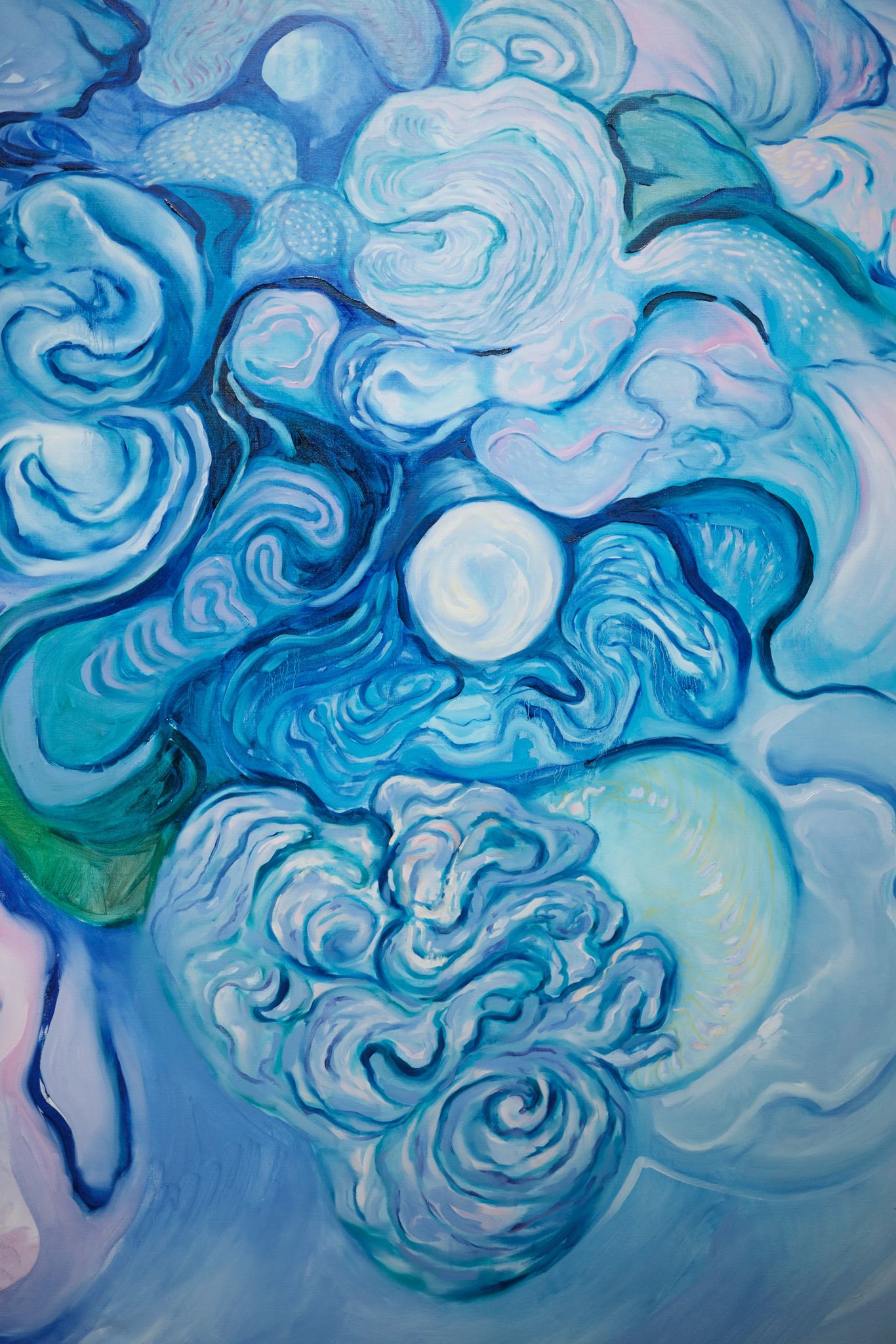Atis Jākobsons's solo exhibition 'Heaven's bodies'
05.07.-25.08.2024. 11.00-18.00From from July 5 to August 25, the Exhibition Hall ‘Riga Contemporary Art Space’ will host a Atis Jākobsons's solo exhibition 'Heaven's bodies'.
Amidst the crumbling of the old world and the overwhelming deluge of distressing news, many of us find ourselves besieged by anxiety, exhaustion, and disharmony in our personal lives.
Our perceptions become attuned to the dark realms filled with fear. Yet, as individuals, we possess the power to choose which frequencies we synchronize with, thereby embracing the brighter facets of existence and illuminating our orbits with hope and light.
The intricate interplay between the micro and macro processes of the world reflects the profound interconnectedness of all beings. Our inner processes affect larger processes. It's crucial to recognize that disharmony within ourselves reverberates outward, impacting communities and ecological realities. Through mindful introspection and a conscious embrace of the present moment, we can cultivate a deeper connection with ourselves and the invisible forces that shape our reality. This conscious presence allows us to sense the subtle nuances of existence and navigate our journey with clarity and purpose.
Heaven's bodies is Atis Jākobsons's exploration of our relationship to the world on the level of vibrational energy and its tangible manifestations in nature, exploring its profound impact on the human psyche and subconscious.
As viewers step into the exhibition, they are immediately enveloped by an immersive landscape that harmoniously combines color, light, and sound, guiding them on an introspective journey.
Atis's artworks unfold sequentially, inviting visitors to experience a gradual revelation of the unseen energies that permeate our reality. The initial encounter with the vibrant pastels introduces the viewer to the raw, intuitive gestures that form the foundation of Atis’s practice.
Smudged and velvety shapes reflect the artist's movements and embodies alive intuitive patterns that translate frequency into visual language. The spontaneous nature of pastel drawing allows new forms to come into being every moment, transforming the creative process into an active exploration of energy.
Moving deeper into the space, the viewer is drawn into the dynamic interaction of shapes and colors that transcend their physical forms. Through expressive use of color and idea of light, Atis depicts a sense of a feeling obtained from meditation or transcendental dreaming. Each piece serves as a meditative portal, beckoning contemplation on our cosmic ties and the unseen forces shaping our personal and planetary well-being. Before composing a painting, Atis incorporates embodiment method by harmonizing himself with peace through personal rituals. He transforms motifs of observations into shapes and colors that communicate to us through senses. Atis captures vibrational rhythms and unseen nature around us in many different ways: tracing orbital movement in lucid colors, painting light entities that remind us of cosmic angels made of energies we often observe during meditations, or forming portal-like spheres that enchant us with its luminosity.
In some of the works, vibrations evolve into ethereal manifestations of energy taking the form of light. And just as light is made up of different frequencies, people emit their own unique vibrational fields, often referred to as “inner light”. This inner radiance, composed of our thoughts, emotions, and intentions, influences the frequencies around us. Together, we create harmonies or disharmonies, resonating with the essence of our surroundings. Thus, as we navigate this luminous realm, our internal radiance weaves the threads of our collective consciousness, echoing cosmic origin from which we all emerged.
Colors possess distinct vibrations and energies that can be physically measured, influencing human perception in nuanced yet profound ways. One of the focal points of Atis's work is studying the symbolism of specific colors and their emotional and psychological impact on the viewer. Simultaneously, the artist allows intuition to guide his choice of color, balancing analytical exploration with instinctive expression and communicating paintings on the subconscious level. The vibrations of certain combinations of colors can deliver healing to our energetic bodies. For instance, blue is considered calming and spiritual, affecting people cognitively by improving concentration. With its shortest wavelength, blue corresponds to greater energy, enhancing relaxation of the nervous system.
“Blue transcends
the solemn geography of human limits.
Blue, an open door to soul.
For blue, there are no boundaries or solutions.
Blue is the universal love in which man bathes – it is the terrestrial paradise.”
-Derek Jarman
The exhibition's design encourages a slow, reflective pace, allowing the audience to fully engage with the frequencies emanating from the works. Building on the understanding of color aforementioned, the exhibition landscape immerses the space in blue, inviting viewers to experience expansive presence beyond the confines of the paintings. Metaphorically, it reminds us of finding light and color in a world that often seems dark. Through this mindful engagement, the viewers are invited to attune themselves to the rhythmic dance of colors and forms, fostering a sense of unity with the cosmic currents that connect all existence. The sound piece and guided meditation further enhance this experience, grounding the audience in the present moment and amplifying their awareness of the interconnectedness between self, community, and the cosmos.
We are being asked to expand our understanding of what our human perceptions include. How do we synchronize with our surroundings and with other entities? What does our environment encompass? How much of the unseen nature of things we include in our field of attention? Born from the cosmos, we carry within us echoes of the universe’s song, our essence intertwined with the pulsating rhythms of creation. In the ethereal realm of interconnectedness and resonance, we are celestial entities composed of vibrational frequencies that create our invisible extended bodies shaping our experiences and connections. It embraces the fluidity of our belonging. The boundaries between self and environment dissolve, revealing the interconnectedness of all beings and the planet Earth through frequencies. This immerses us in a dialogue that transcends the boundaries of time and space.
Curator: Anna Vilīte
Sound artist: Reinis Semēvics
Satellite programme participants: Linda Boļšakova (LV), Sandra Kosorotova (EST)
Production: Jevgēnija Hamudajeva
Scenography: Artūrs Arnis
Translation: Valts Miķelsons
Satellite programme:
On July 20th at 11.30, creative workshops will be held with the interdisciplinary artist Linda Bolshakova.
Plants wisdom holds transformative potential in fostering healing and reconnecting us with natural rhythms. Through delving into the healing properties of plants, participants will discover practical applications for attunement with our extended energetic bodies. Finding cosmic balance in the belief “as above, so below”.
On August 25th at At 7:30 p.m., the performance of the Estonian artist Sandra Kosorotova will take place.
Sandra will hold a performative lecture about Adonia – a festival of an ambiguous meaning that was celebrated in the Classic Athens in late summer. Its rituals were centred around the so-called Gardens of Adonis — miniature gardens that lasted for 8 days only. They were propagated by women of all the stratas of the society – by mixing a bit of soil, seeds and water onto pottery smithers. The gardens were left on the sunny roofs for the seeds to sprout and viciously grow into plants, that would wither after a few days, unable to root in the small pots with little soil and dried by the harsh August sun. Sandra will use the figure of the mini garden as a metaphor and weave together texts from mythology, philosophy of antiquity, anthropology, psychoanalysis, poetry and fiction. Sandra will also enact the ritual by making the mini gardens herself.
The exhibition is organized by the Exhibition Hall ‘Riga Contemporary Art Space’, the Association of Culture Institutions of the Riga City Municipality, and supported by Riga City Council, the State Culture Capital Foundation and Gardu Muti.
